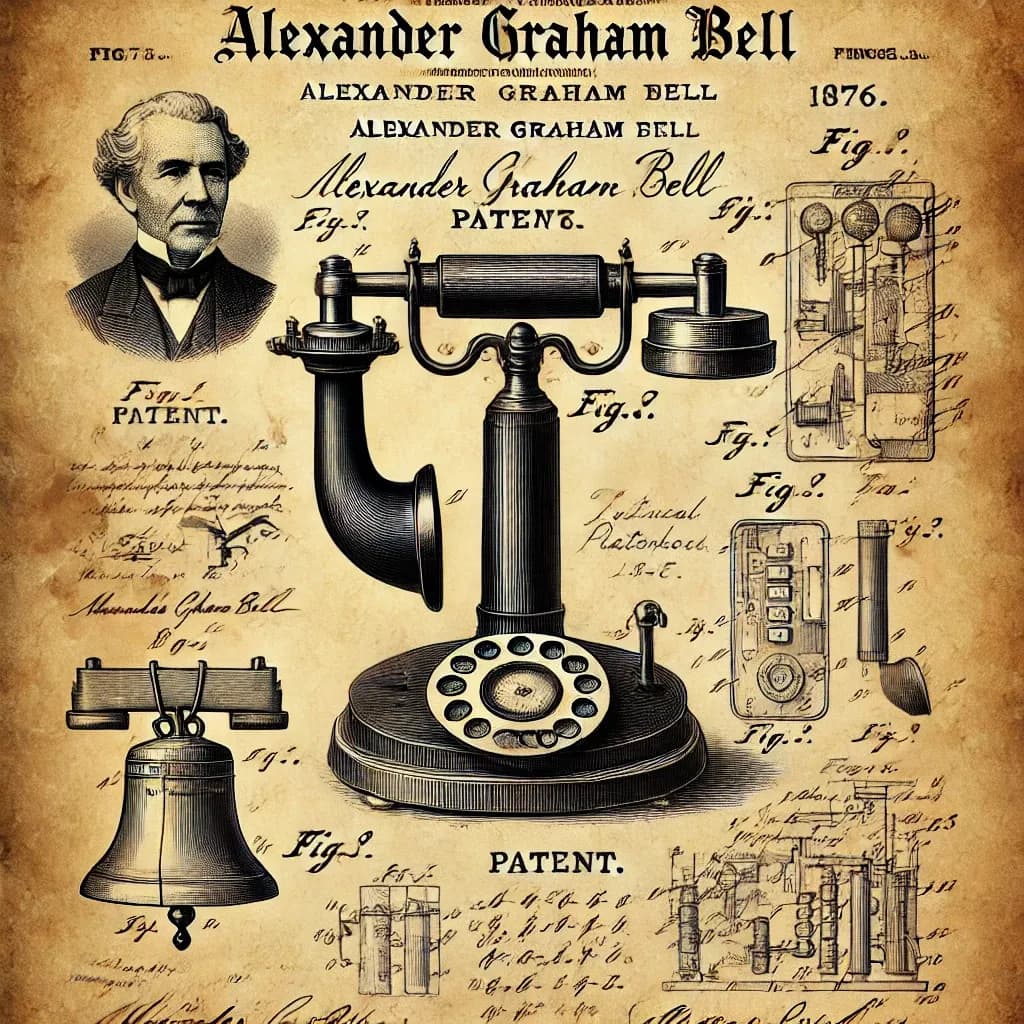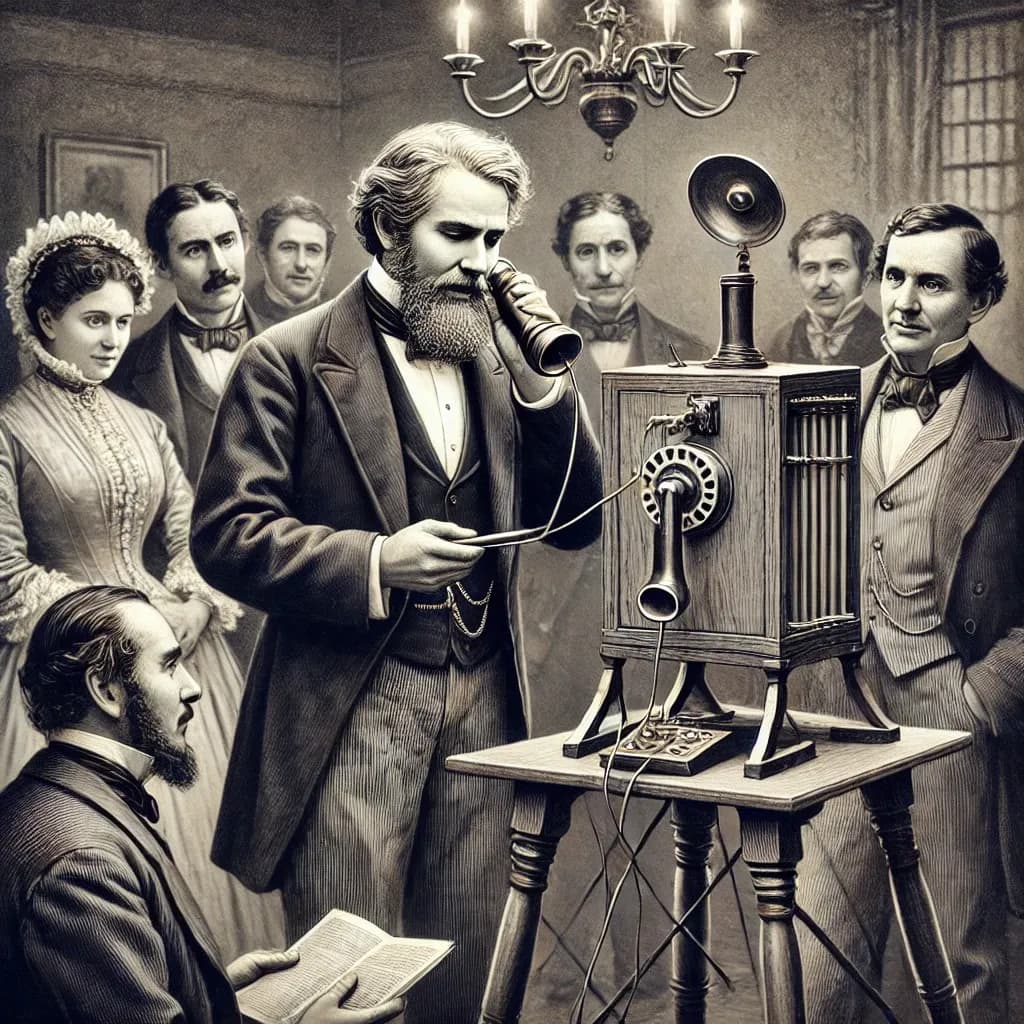On March 7, 1876, Alexander Graham Bell received a patent for his invention of the telephone, forever changing the way humans communicate. This groundbreaking invention laid the foundation for modern telecommunications, connecting people across great distances. Bell’s innovation was not just a technological marvel of the 19th century, but a pivotal moment in human history that continues to shape the world today.
Before the telephone, long-distance communication relied primarily on the telegraph, a system that required trained operators to send and decode messages in Morse code. Bell, a Scottish-born inventor and educator of the deaf, had been experimenting with transmitting vocal sounds electronically. His research led to the development of a device capable of converting sound waves into electrical signals and back into audible speech. On March 10, 1876, just three days after securing the patent, Bell successfully transmitted the first intelligible sentence to his assistant, Thomas Watson: “Mr. Watson, come here, I want to see you.”

The Birth of the Telephone
Bell’s early experiments focused on improving the telegraph’s ability to transmit multiple messages at once. However, his discoveries soon led him in a new direction—the transmission of voice. He and his team worked tirelessly to refine their invention, creating the first working prototype of the telephone. With this breakthrough, communication was no longer limited to dots and dashes but could carry the full richness of human speech. This achievement marked a turning point in technological history, opening the door for future innovations in electronic communication.
A Milestone in Human Connectivity

The telephone revolutionized communication by allowing people to speak directly to one another regardless of distance. Businesses rapidly adopted the technology, recognizing its potential to improve efficiency and decision-making. By the early 20th century, telephone networks expanded across continents, making real-time voice communication a reality. This transformation paved the way for global economic growth, social interactions, and international diplomacy. The telephone became an essential tool for emergency response, news dissemination, and personal relationships.
The adoption of the telephone also sparked the rise of major telecommunications companies, shaping the modern corporate landscape. Companies like AT&T emerged as industry leaders, setting standards for innovation and infrastructure that continue to impact how people connect today. The telephone’s influence extended beyond business, fostering a more interconnected world where information could be exchanged rapidly, improving education, commerce, and governance.
The Lasting Impact on Modern Society

Bell’s invention set the stage for a series of technological advancements in communication. The development of switchboard systems, rotary and push-button telephones, and eventually mobile phones all stem from his pioneering work. Today, the telecommunications industry continues to evolve, with smartphones, video calls, and the internet enabling instantaneous global connections. The principles behind Bell’s original telephone still underpin modern devices, demonstrating the lasting influence of his work.
From Bell’s first patent to the age of 5G and artificial intelligence-driven communication, the telephone remains one of the most significant inventions in history. Alexander Graham Bell’s vision of a connected world has been realized beyond what he could have imagined, proving that innovation has the power to reshape society for generations to come.